Whether you’re a seasoned hunter or just getting started, there are plenty of opportunities to get out and enjoy the great outdoors. This includes duck hunting for many people, especially in the South! South Carolina is one such state in the U.S. that is a popular duck hunting location for residents and travelers alike.
Duck hunting season in South Carolina offers some excellent hunting experiences for all levels. In this article, we will discuss the season dates, bag limits, and more for those interested in duck hunting in South Carolina.
South Carolina Duck Hunting: Season Dates
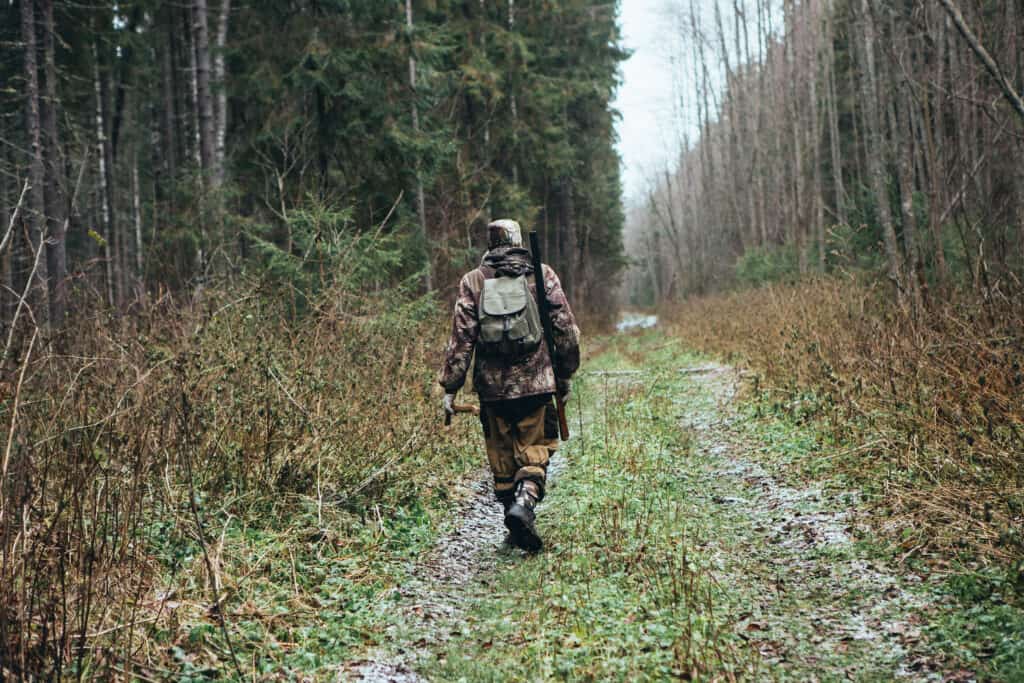
Duck hunting has a reputation for being gear heavy.
©Scharfsin/Shutterstock.com
Duck hunting season in South Dakota runs from November 1st through March 1st. Early Canada Goose season and Dove season both start on September 1st, which is the start of the Carolinas’ migratory bird shooting season. Visit the South Carolina Hunting Seasons website for more details on the hunting seasons in South Carolina.
With an abundance of public land available throughout many parts of our state, it’s easy to find a spot where you can set up camp and start searching for those elusive birds! And don’t forget about safety; always wear blaze orange while hunting during duck season so other hunters know where you are located on the field at all times!
South Carolina Duck Hunting: Bag Limits
Depending on the species of duck, South Carolina’s daily bag limit changes during the duck hunting season. For instance, the daily bag limit for wood ducks is three, whereas it decreased from four to two mallards in the 2019-2020 season. There is no set bag restriction for coots, however, there is a daily limit of five mergansers. Bag restrictions are subject to both federal and state legislation, so it’s necessary to research the rules for each species before going hunting. Additionally, non-toxic shots must be used when hunting waterfowl within state boundaries as well as federal waters off the coast of SC.
How To Obtain A Hunting License For Duck Hunting In South Carolina
Hunters are required to buy a hunting license, which is necessary for all hunters in South Carolina who are 16 years of age or older, in order to go duck hunting in the state. You can acquire a hunting license at a South Carolina Department of Natural Resources office in person or online. Before going hunting, it’s vital to review the rules for each species because different licenses and fees could apply depending on the animal being pursued.
Depending on the species being hunted, extra licenses and fees can also be necessary. Hunters who want to pursue migratory waterfowl must obtain both the Federal Duck Stamp and the South Carolina Migratory Bird Permit.
How Much Do Duck Hunting Licenses In South Carolina Cost?
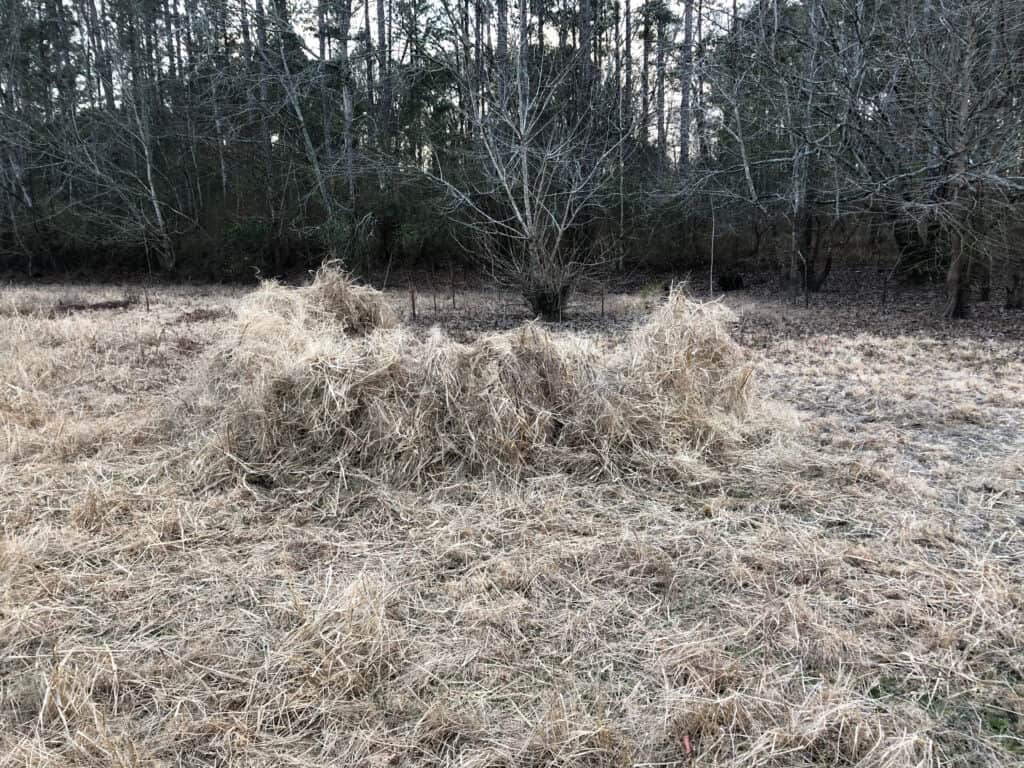
Many hunters use duck blinds to conceal themselves while hunting.
©CopsFishin/Shutterstock.com
Residents
A duck hunting license in South Carolina costs $12 a year for residents. Residents are also required to pay $6 annually for a Big Game Permit in addition to their hunting license.
Non-Residents
Non-residents must pay $125 for a hunting license in South Carolina to go duck hunting. They must also pay $100 for a Big Game Permit in addition to their hunting license. It is significant to keep in mind that further permissions and costs can be necessary depending on duck the species hunted.
How To Purchase A Hunting License For Duck Hunting In South Carolina
If interested, you can visit the South Carolina Department of Natural Resources office in person to buy a hunting license for duck hunting by bringing a completed application. The South Carolina Department of Natural Resources website also offers online license sales for hunters.
Restrictions On Hunting Methods For Duck Hunting In South Carolina
The South Carolina Department of Natural Resources website states that falconry is a legal method of capturing ducks, coots, and mergansers in South Carolina and that it has a prolonged season.
Additionally, all waterfowl hunting in South Carolina is forbidden by the possession of lead shot, and nontoxic shot (steel, bismuth, or another Federally certified shot) is necessary for waterfowl hunting nationwide.
In order to hunt migrating ducks, all hunters who are 16 years of age or older must obtain both the South Carolina Migrating Bird Permit and the Federal Duck Stamp.
Hunters are also required to have a current South Carolina hunting license, a current Migratory Bird Permit, a current Migratory Waterfowl Permit, and a current Federal Waterfowl Stamp.
Types of Ducks You Can Hunt In South Carolina
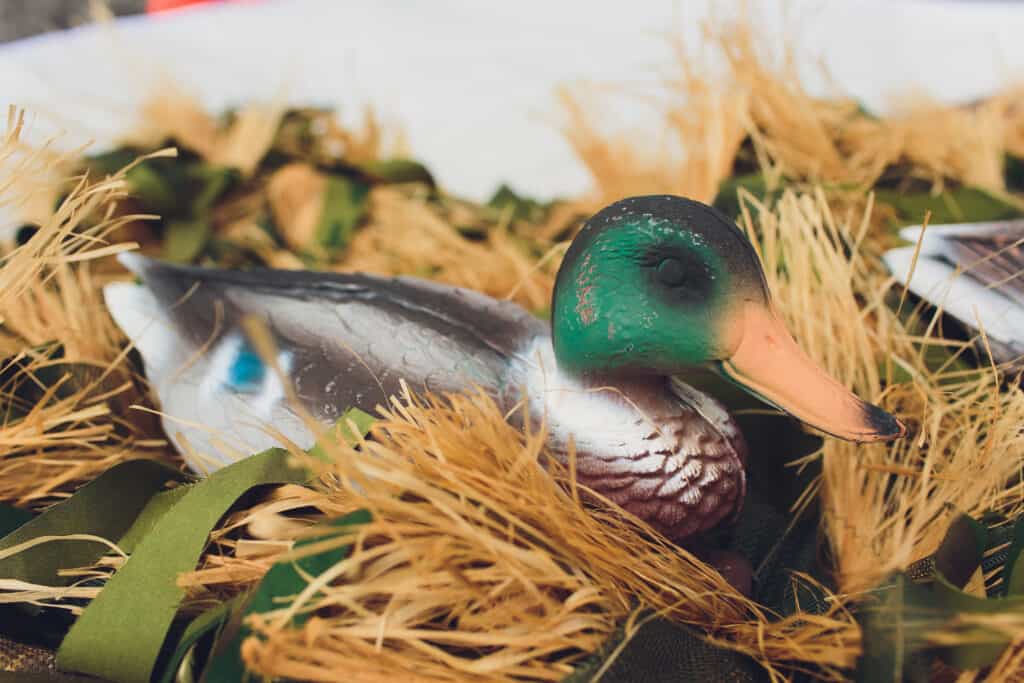
Setting up duck decoys like this Mallard can help attract more ducks to your hunting area.
©iStock.com/Vershinin
In South Carolina, you can hunt a variety of duck species. Hunters frequently pursue the ruddy duck, pintail, northern shoveler, northern mallard, gadwall, canvasback, and American wigeon species.
Ring-necked Ducks, Redheads, Lesser Scaups, Greater Scaups, and Canvasbacks are some of the common bay ducks, often known as pochards, found in South Carolina. In South Carolina, Wood Ducks can be spotted all year round.
South Carolina is also home to other duck species such as the Hooded Merganser, Common Goldeneye, Bufflehead, Black Scoter, and others.
Before hunting, it’s vital to confirm the rules for each species because different species of migrating ducks and other birds have varying bag and possession restrictions.
Most Popular Duck Species Hunted In South Carolina
According to a list created by Stacker using information from the Fish & Wildlife Service, the most frequently hunted migratory birds in South Carolina include:
- Mallards
- Green-winged Teal
- Wood Ducks
- Gadwalls
- Blue-winged Teal
According to another report, the top species often include:
- Northern Shovelers
- Widgeons
- Blue-winged Teal
- Pintails
Hunters will also frequently encounter:
- Mottled Ducks
- Scaup
- Ring-necked Ducks
How Does The Hunting Season For Ducks In South Carolina Compare To Other States?
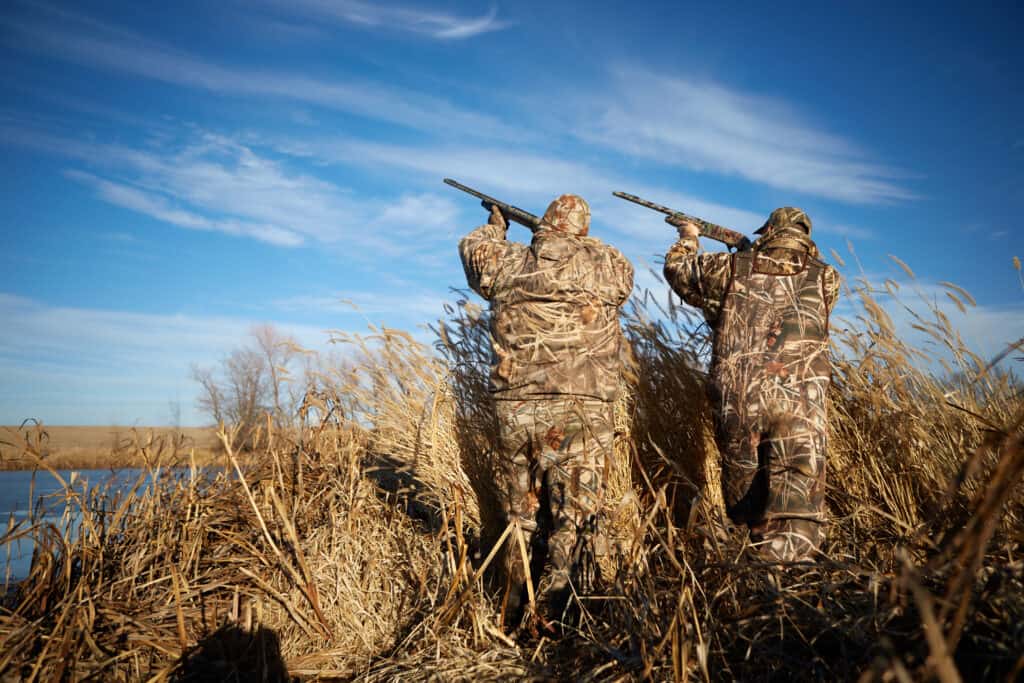
Take the time to scout the area you want to hunt and monitor the movement and rhythms of the waterfowl prior to setting up your blind.
©CLP Media/Shutterstock.com
According to OutdoorWorld Reviews, South Carolina is a great place for duck hunting, albeit there can be competition given that duck hunting is a popular activity among year-round hunters there. South Carolina provides good public gunning and waterfowl harvest numbers, according to Realtree Camo.
A summary of South Carolina’s open hunts is also provided by Game & Fish Magazine, which can assist hunters in making the most of their trip. According to the article, drawn duck hunts are permitted in a number of WMAs and are generally good to great.
The South Carolina Waterfowl Hunting Directory also includes a number of South Carolina hunting lodges, guides, and outfitters that provide top-notch duck hunting.
Similar to South Carolina, there are duck hunting seasons in other states as well, which normally last from fall through winter. For instance, the duck hunting season lasts from November to January in Arkansas. The duck hunting season in Louisiana normally lasts from November through January or February.
What Makes For Good Duck Hunting?
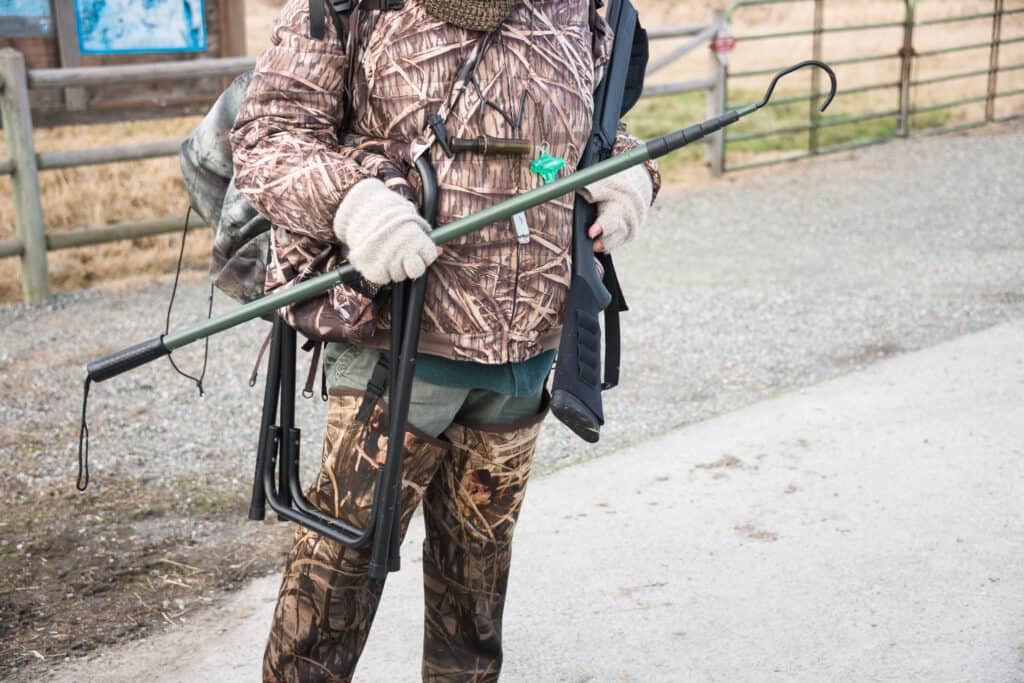
The right gear can make a big difference between a miserable cold, wet, duckless day and a well prepared exciting day of meeting your bag limit.
©Denise Lett/Shutterstock.com
A successful duck hunt depends on a number of elements. Scouting and being in the right place at the right time are two of the most crucial elements. Good duck hunters are also familiar with their prey and are aware of how ducks and geese respond to pressure from hunters and changing weather patterns. They now know how to avoid being seen by birds and where to set up for success.
Hunting success can also be impacted by elements including the weather, habitat characteristics, and local scale factors. It might be difficult for beginners to recognize targets, read speed and distance, learn to fire harmless rounds, shoot from awkward positions, and read speed and distance.
Last but not least, states with successful duck hunting tend to have fewer active duck hunters, which may result in better success rates per hunter. As a result, successful duck hunting requires an understanding of the birds, scouting, the right equipment, and the various factors that can influence hunting success.
What Are The Best Locations For Duck Hunting In South Carolina?
There are various places to go duck hunting in South Carolina. According to OutdoorWorld Reviews, wherever there is water on public land is the ideal spot to go duck hunting. According to Realtree Camo, wood ducks, which make up the majority of the harvest in South Carolina, have the ideal environment and exceptional potential in inland marshes, creeks, and flooded timber.
Also, Ducks Unlimited mentions a number of public duck-hunting initiatives in South Carolina. The Santee Coastal Reserve WMA, which provides pre-built blinds for hunts in each area, is among the public hunting opportunities in South Carolina that are described in Game & Fish Magazine. According to the article, drawn duck hunts are permitted in seven WMAs, most of which are located in the Coastal Plain.
The South Carolina Waterfowl Hunting Directory also includes a number of outfitters, guides, and hunting lodges that provide guided duck hunts in South Carolina. As a result, South Carolina offers duck hunting in a variety of places, including public lands, DU projects, WMAs, hunting lodges, and outfitters.
The photo featured at the top of this post is © Wirestock Creators/Shutterstock.com
Thank you for reading! Have some feedback for us? Contact the AZ Animals editorial team.






